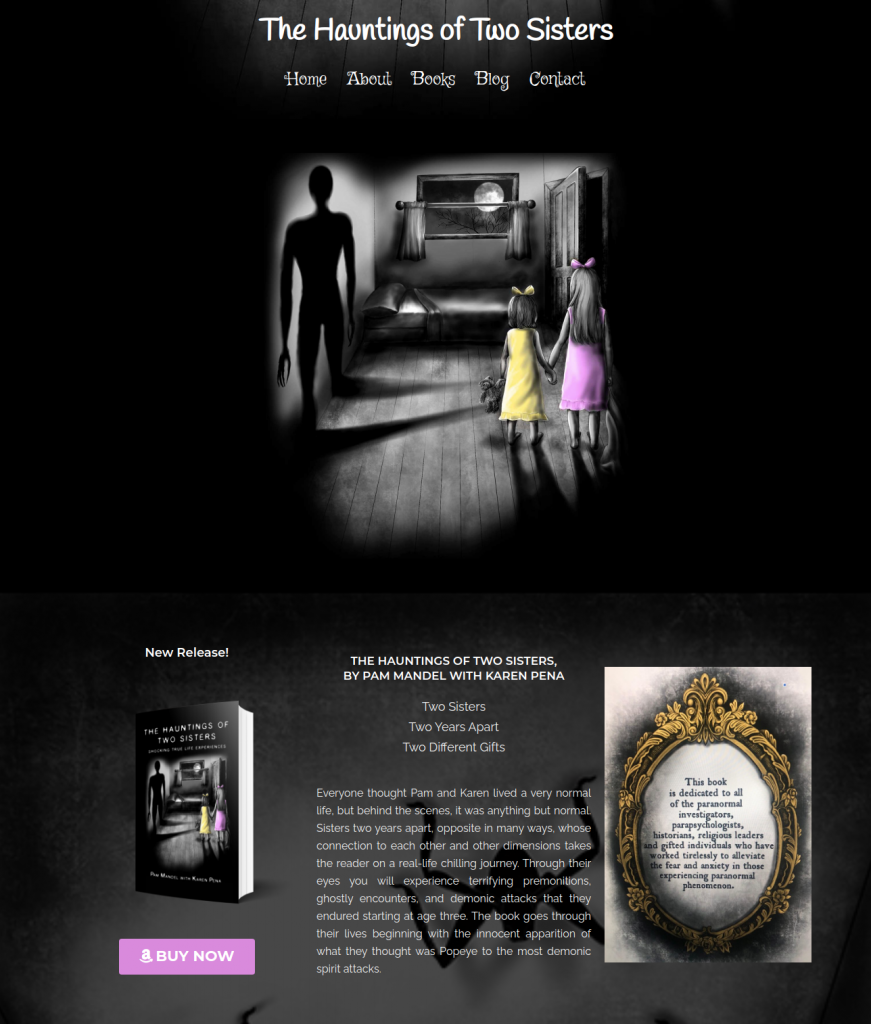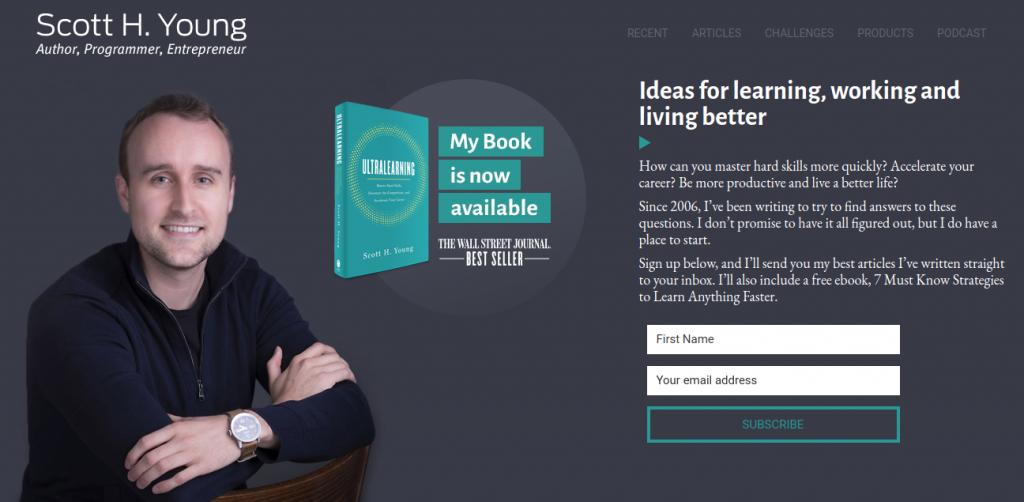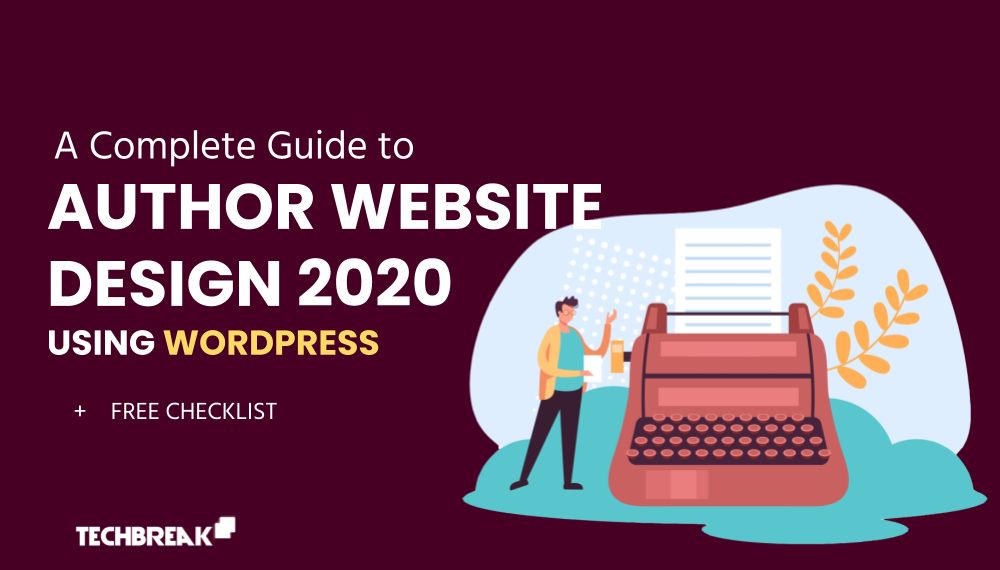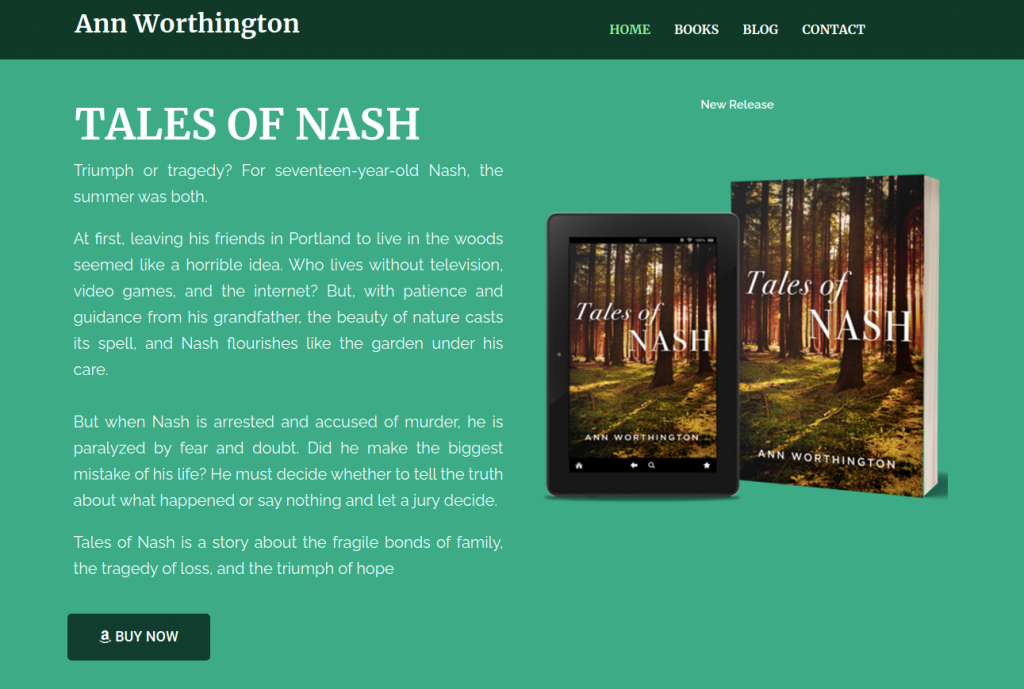Author Website Design Guide 2020
Should an Author have a website?
Being an Author, this is the first doubt you might have.
Well, Websites are the digital realm’s version of a blank page. Their existence is limited by the creator’s imagination, akin to how a simple sheet of paper can give rise to “The boy who lived.”.
In the 21st century, aspiring writers have to tackle ancient issues of plot development, breathing life into their characters, and the dreaded ‘writer’s block’ – along with the problems of the digital ecosystem.
As is with complex situations, the solutions are often simple.
The best strategy to tackle those digital complexities? An author website.
Yep. No 140 character tweet or long Facebook post is going to help your audience connect with you.
With social media engagement rates of 3-4% being marked as “high” – how can you possibly communicate in an effective manner?
With a professional author website design, however, you can provide a centralized hub for access to one resource: you.
Think about an author that you cherish – how wonderful would it be if you could converse with him/her?
With a website – you can replicate that feeling for your fans and much more.
SET GOALS FOR YOUR AUTHOR WEBSITE,
There are many objectives to have an Author website,
But as an author, you are focused on one particular goal above all else: selling your books, along with increasing a list of followers.
Sell Books :
The website is a digital marketing tool.
If you use it appropriately it should increase your sales.
So Keep your target audience in the mind before getting started with your ” Author Website Design”
Email List :
Connecting with your audience was never that easy before.
Web technology make it happen. Using an email subscription form, you can collect the email addresses of your audience.
With whom you can share any recent blog post, article, or any discount for them to purchase your book.
So, make sure you have an integrated Email Subscription form in your Author Website Design.
Before we get into the nitty-gritty, let’s check out some Author Website design Inspiration so that you have a baseline to get started with.
1.Ann Worthington
If you ever need an example of a minimal, modern and responsive author website, head on over to annworthington.com
She pretty much hits every single point on the author website design checklist – simple navigation, the central focus on the book, Author Bio, contact details, a Blog.
And a Highlighted Call To Action Button says ” Buy Now” which linked to her amazon.
Furthermore, If you visit her “Books” she strategically added a Promotional Video along with embedded Reviews/testimonials from “GoodReads”.
Do you think a good Book Author Website needs anything more?
2.Pam Mandel

If theme based Customized Author Website design is your preference then head over to thehauntingsoftwosisters.com.
A horror theme based tremendous Website Design for the author Pam Mandel, you can take inspiration from.
The website portrays the story of the Book and still fulfills the Maximum point of Our Author Website Design Checklist.
You can see the About us, Books, Blog & Contact page along with a highlighted button which makes the sale in Amazon.
However, an integration of E-mail Subscriptions can make the author’s website more solid.
3. Scott H. Young

If there is one thing that you realize visiting this website, it is this: Scott H. Young’s books are popular.
The website is wonderfully designed with a turquoise and gray color theme – drawing the reader into the right side of the page, where they can sign up for his newsletter.
Try to glance away and you inevitably find yourself scanning the top right where you find out about his articles, challenges, podcast, and products.
However, the website could be better with the navigation links being turquoise-colored as they would match the theme and pop out.
Author Website Design recommendations,
Hopefully, the above examples have shown you that an author’s website, just like a well-written story, has to be crafted. Here are 10 recommendations that, regardless of your field, will help you design a stunning website.
1. Choose a design that suits your personality.
When readers and publishers visit your website, they want to experience what it would feel like if they were having a conversation with you. Keeping this in mind, design your website according to the values that you hold dear, and how you behave normally.
Have a calm disposition? Choose something minimal and soothing.
Known to have a lot of energy? Pull out those creative thoughts and dump them all over that canvas.
Your books are the finished product of your hard work and dedication – it’s time that readers got to know you for a change.
2. You never get a second chance at first impressions.
Would you visit a website that looked like one of those from the early 1990s? No, and your readers feel the same way.
Showcase your latest book as front and center, and add details around it. Highlight your latest blog posts (and you should have a blog!), awards, social media accounts, and interactions with readers.
Just like the first paragraph is the factor that decides whether or not readers dive into your book – the homepage tells visitors to stay for a while, browse around and potentially buy your new book as they leave.
3. The About Page
52% of visitors expect to see an about page whenever they visit a website, according to KoMarketing. With readers, you can expect that number to skyrocket.
When designing this page, keep it simple: a headshot and a bio.
Choose a headshot that clearly shows your face and a bio that tells your story. Don’t be afraid to add a few personal details of your own journey into becoming an author!
When designing this page, keep it simple: a headshot and a bio.
Choose a headshot that clearly shows your face and a bio that tells your story. Don’t be afraid to add a few personal details of your own journey into becoming an author!
Tip: If you use the same headshot everywhere, it creates a sense of familiarity for the visitor and tells them they’re in the right place.
4. Showcase your collection
If you’ve published more than a few works, have a dedicated page where you showcase all of that hard work!
Again, keep it simple.
Book covers, titles, and a short description are the recipes to success when you have a collection on display. Let the readers take the initiative of diving in, your job here is to simply help them along that journey.
If you feel the need to expand upon the work in detail, you can add two links: one leading to a longer description of the book and another to take them to the purchasing portal.
5. Contact Details
Sometimes, your visitors aren’t readers – they’re journalists, event organizers or even publishers!
In such situations, it is vital that they can easily navigate to a page where they can learn how to get in contact with you. Email addresses are great for instant communications, but office P.O. Boxes work fine as well.
Also remember to share your social media links here, so that they can tag your accounts when they publish to their feed.
6. Events
If you have partaken in community or company events, the ‘Events’ page is where you showcase that. It doesn’t have to be elaborate either – a good picture where people can see that you are engaged is a fantastic formula of getting away with not writing anything!
Given a TED talk? Lectured at an educational institution? Conversed on a podcast?
All of those activities go here! Show the world that you are confident in speaking just as you are in writing.
Be sure to include what type of events you are comfortable participating in and how organizers can get in contact. It may be something as simply pointing them to the ‘Contact’ page, or laying out distinct instructions.
This is a wonderful opportunity to display that you are dedicated to the field, beyond just writing books. Social activity presence can pay off in a multitude of ways, opening doors that otherwise might have taken years on your own.
7. Blog
Writers such as JK Rowling, Stephen King, and Charles Dickens have all spoken about the importance of writing regularly.
One way to do this is with blog posts, where you can publish short stories or about interesting events revolving around your field.
Take the example of James Clear, the author of the book ‘Atomic Habits’. Before writing the book, he regularly posted on his blog about the science of forming habits. The remarkable thing is that even after he published his book – he kept on writing for his blog.
That little habit of writing regularly has helped him gather a loyal reader base – and made him into an expert in his field.
8. The Invitation
There is a sense of joy in exclusivity. We love receiving items that allow us to experience a sense of group cohesiveness that others are not privy to.
You can make your readers feel the same way – just create a simple email newsletter that offers exclusive access. Maybe you could talk about your writing process, early access to your events or even your latest book!
Just make sure that you stick to what you offer and don’t feel the need to communicate continuously – an email a month is far more influential than one every single day.
9. On Reviews
Reviews are a great way to earn some social credit. After all, you would trust an author more if they had the editor of Time magazine remark in a positive way about them right?
Do not create a separate page for this. I repeat, do not create a separate page.
Reviews are like salt – you sprinkle them on top of other pages to uplift the whole experience of your website. Overdo them, and it starts to feel spammy – and no one likes that.
Reviews can be in multiple forms – testimonials, audio messages or even video. Regardless, curate the best and include them throughout your website.
10. Get creative.
Books take on many forms – from encyclopedias, magazines, and fiction works to biographies and artwork. This is your website – make the visitor feel excited that they are compelled to come back and share with their audience.
Perhaps you could create a giveaway page when you release your next book. Or you could offer to speak at a charity – where you let the readers choose from a list of curated ones.
6 steps towards building your author website
Now that we’ve looked at some fundamentals of how to structure your website – let’s talk about how we can actually get it up and running!
1. Pick an appropriate domain name
As an author, it is important to remember that no matter how dearly you hold your current project, you will inevitably move on to the next one. So, pick a domain name that is professional and holds its ground over the long term – like your name.
Use a combination of your first and last name with the ‘.com’ domain. If your first and last names are already taken, then try using ‘books’, ‘author’, or even your middle name in the domain name. For example, if your name is Jessica Keys and jessicakeys.com is already taken – use jessicakeysbooks.com. It sounds professional and ensures that the domain is still relevant to your original purpose of selling books.
How do I search whether or not a particular domain name is available, you say?
Check Your Domain Availability Here
2. Sign up for a web host
After you’ve registered a valid domain name, you need a web hosting provider. Correction – you need a reliable web hosting provider. Don’t underestimate this step, as choosing the wrong provider can mean a downward spiral with customer service that leads to nowhere.
3. Choose the right platform for your Author Website Design
There are a lot of platforms to choose from, such as Weebly, WordPress, Squarespace, and Wix. However, we recommend WordPress for two reasons: simplicity and plugins.
While wordpress allows you to customize your website according to your needs, it comes with default settings that do not much tweaking by default. Furthermore, there are a lot of plugins that are actively maintained by third-party companies across a variety of sectors such as security, caching, and design.
4. Select the right author website theme
With wordpress, you have access to an abundance of free and commercial themes. While there are a lot of choices there are two trade-offs – with free themes no support is provided and with commercial themes there is a learning curve.
At Hostcode Labs, we believe that every customer is unique – and thus their experience should be as well. Thus, we offer custom website development that is geared towards a great visitor experience, SEO-centric and strives toward extremely fast performance.
5. Email Lists
Email lists are a powerful marketing tool, allowing you to have direct access to your reader base. But if you are shying away from email lists because of the pressure to release content every day – don’t. Think of email lists as a way of connecting with your readers, not as an operational service.
Hearing from someone you respect every week or month is more valuable than hearing them rabble on every day – so don’t worry about generating content. Create valuable content and the readers will thank you!
6. Organize your content
Lastly, you should know what particular pages are required for your website. We’ve talked about them in the recommendations above, so here’s a short summary:
- Homepage
- About Page
- Contact Page
- Books
- Blog (if applicable)
- Events/Speaking (if applicable)
Remember, you can add/remove pages according to your requirements. The important thing is that visitors are excited to browse around, connect with you, and eventually purchase your work. The creative possibilities are endless – so go out and grab them!
What’s next?
Speaking of possibilities, there are a lot of companies that seek to trap you into buying their product but provide hard to decipher documentation once you complain about having problems.
At TechBreak24, we believe that authors should focus on what matters the most – writing. Thus, we partnered with Hostcode LAB Technologies to offer a complete Digital solutions for Authors like you.
From Setting up WordPress to Creating stunning Customized Website for Authors/ Writers with Mobile Responsive & SEO friendly design layout. Furthermore, we provide 24×7 support to our customers because we recognize the value of helping those who help others.
If you’d like to get started on crafting that incredible website of yours, we’d love to be a part of that journey.
Are you interested to Download our Author Website Design Guide 2020 for Free ?


